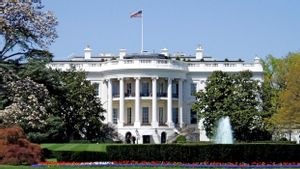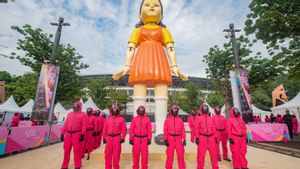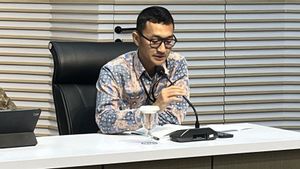JAKARTA - Chinese authorities are expanding websites containing details of religious workers, so that now covering the five recognized religions of the state, Beijing's latest move to tighten controls over their activities.
The website was launched in February, giving the public access to get information about monks and Buddhist and Tao leaders.
The Communist Party's Front United Department of Works, which oversees religious activities in China, said at the time the website could help expose fraud committed by rogue Buddhist monks and Tao.
The site was expanded on Tuesday to include all priests, nuns, pastors, scholars and other workers in Catholic institutions, Protestants and Islam approved by the government, according to SCMP May 24.
Details published on the web include, among others, name, gender, photo, religion and denomination, position in the organization and registration number issued by the government. Everything is publicly available on websites. Users must provide phone numbers to search for information on the site.
Interestingly, religious workers who have not been approved and recorded by the government are not registered on the web.
The United Front Department of Jobs said in February that the move to release this information was a way to make religious organizations more disciplined.
It said this move could help crack down on fake monks and monks, amid reports of extortion and sexual harassment perpetrated by fake monks and monks.
This website is part of a broader campaign by China's official ruling party, to increase control of religious workers through the use of large data and grassroots cadres.
Since 2018, cadres have been assigned to units formed by city and village committees to oversee the activities of people in religious organizations in their area.
The move came after a reshuffle that made the former State Administration for Religious Affairs absorbed into the party system.
Authorities in some areas have also started using large data, to help grassroots officials control and monitor religious activities, including giving them access to information such as places, staff, activities and finances of religious groups in their area.
اقرأ أيضا:
Laohekou, a city in central Hubei Province, is one example. The local government in February said hundreds of cadres had downloaded apps to track finances, security and activities of places of worship and their followers. Cadres are also tasked with spreading government propaganda to visitors and temple staff as well as churches in their area.
The cameras have also been installed on several places of worship in Laohekou, and elsewhere in China, so authorities can monitor them in real time. The cameras are connected to Xue Liang, or Sharp Eyes, a wide surveillance project aimed at public spaces in all villages, cities and districts.
Authorities in Xiangyang, who oversee the Laohekou Government, said they wanted to expand the use of Sharp Eyes cameras to more religious places.
The English, Chinese, Japanese, Arabic, and French versions are automatically generated by the AI. So there may still be inaccuracies in translating, please always see Indonesian as our main language. (system supported by DigitalSiber.id)


















